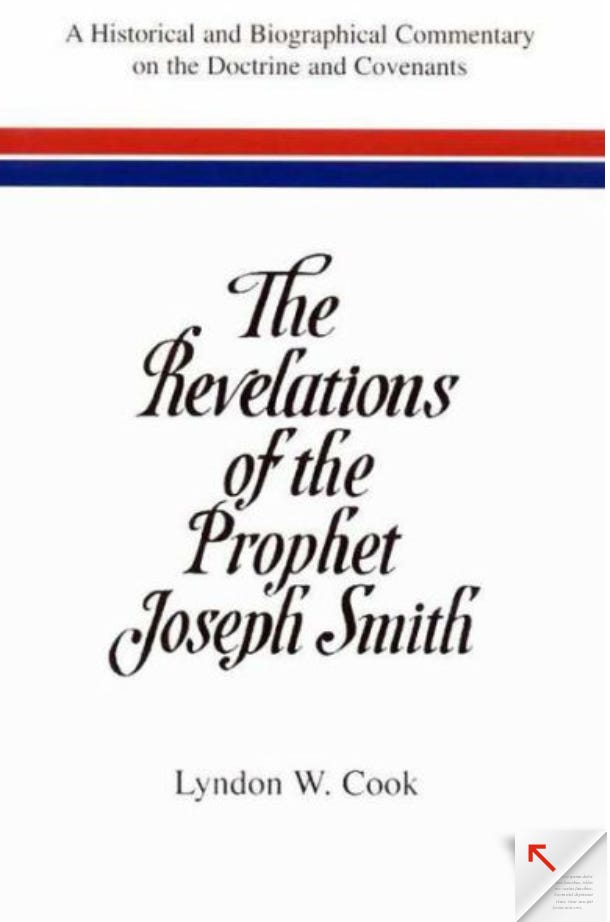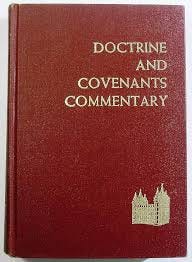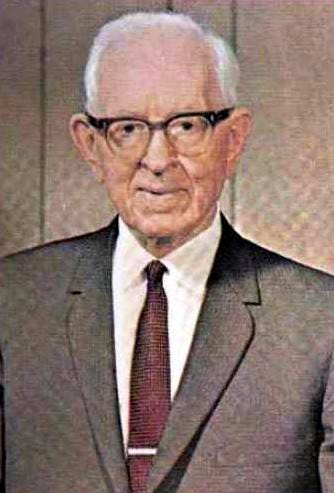It Is Expedient to Translate Again
Historical Background and Reflections on Doctrine and Covenants Section 73
What is the historical background for Doctrine and Covenants Section 73?
This is Bruce R. McConkie’s section heading for this section:
Revelation given to Joseph Smith the Prophet and Sidney Rigdon, at Hiram, Ohio, January 10, 1832. Since the early part of the preceding December, the Prophet and Sidney had been engaged in preaching, and by this means much was accomplished in diminishing the unfavorable feelings that had arisen against the Church (see the heading to section 71).
In their Doctrine and Covenants Commentary, Smith and Sjodahl briefly introduce this section:
A Conference had been appointed to be held at Amherst, Ohio, January 25th, 1832. The Elders (for their names see Sec. 75) while waiting for Conference time, were anxious to know the will of the Lord, whereupon the Prophet received this Revelation, in which He (1) directs the Elders to preach the gospel to the world and exhort the churches, until Conference (vv. 1-2); (2) instructs the Prophet Joseph and Sidney Rigdon to resume the Bible revision and to preach whenever convenient, until Conference time (vv. 3-4). (p. 431)
In his book A Joseph Smith Chronology, J. Christopher Conkling writes:
Jan. 1832
Joseph recommences the translation, working until the time of the next conference. During this time he asks the Lord for an explanation of 1 Corinthians 7:14 and receives D&C 74.
Jan. 10, 1832
Until this time Joseph and Sidney have been in the southern part of Ohio, preaching the gospel, after which they return to Hiram. Joseph receives D&C 73, telling the elders to continue preaching until their next conference. (p. 30)
In his book The Revelations of the Prophet Joseph Smith, Lyndon W. Cook sheds more light on this section:
Date. 10 January 1832.
Place. Hiram, Portage County, Ohio.
Historical Note. On 1 December 1831 a revelation (section 71) had instructed Joseph Smith and Sidney Rigdon to preach the gospel in the regions round about. On their return they received section 73, which instructed them to resume their work of translation until the upcoming conference. The conference referred to was convened in Amherst, Ohio, on 25 January 1832.
Publication Note. Section 73 was first published as section 29 jin the 1835 edition of the Doctrine and Covenants. (p. 151)
This is the Prophet Joseph Smith’s introduction to this revelation:
From this time [Dec. 1831] until the 8th or 10th of January, 1832, myself and Elder Rigdon continued to preach in Shalerville, Ravenna, and other places, setting forth the truth, vindicating the cause of our Redeemer; showing that the day of vengeance was coming upon this generation like a thief in the night; that prejudice, blindness and darkness filled the minds of many, and caused them to persecute the truth Church, and reject the light; by which means we did much towards allaying the exciting feelings which were growing out of scandalous letters then being published in the Ohio Star, at Ravenna, by the aforementioned apostate, Ezra Booth. [Section 64:15-16.] On the 10th of January, I received the following revelation making known the will of the Lord concerning Elders of the Church until the coming of the next conference. [Section 73, follows.] (HC 1:241, January 10, 1832, Hiram, Ohio.) (Roy W. Doxey, Latter-day Prophets and the Doctrine & Covenants, Vol. I., pp. 564-565, See also Monte S. Nyman, Doctrine and Covenants Commentary, Vol. 2, p. 11)
With this historical background in mind, let’s examine and appreciate the revelation in D&C 73:
For verily, thus saith the Lord, it is expedient in me that they should continue preaching the gospel, and in exhortation to the churches in the regions round about, until conference;
And then, behold, it shall be made known unto them, by the voice of the conference, their several missions.
Now, verily I say unto you my servants, Joseph Smith, Jun., and Sidney Rigdon, saith the Lord, it is expedient to translate again;
And, inasmuch as it is practicable, to preach in the regions round about until conference; and after that it is expedient to continue the work of translation until it be finished.
And let this be a pattern unto the elders until further knowledge, even as it is written.
Now I give no more unto you at this time. Gird up your loins and be sober. Even so. Amen. (D&C 73:1-6)
The “they” mentioned in the first verse refers to the others who were on missions (see D&C 57–68). Church conferences were important gatherings during which revelations were received and missions assigned. In the meantime the elders were commanded to continue preaching the gospel and exhorting the churches, and Joseph Smith and Sidney Rigdon were commanded to resume work on the translation of the Bible, preaching whenever practicable, or whenever possible. The translation of the Bible was an important branch of Joseph Smith’s calling that the Lord commanded him to work on until he finished it. (See also D&C 90:13)
It is important to note how the Lord established patterns and examples for members of His Church to follow. Before revealing more, the Lord commanded His people to learn and follow the patterns and examples that He had already established. Ultimately, the greatest Pattern and Example for our lives is that of our Savior Jesus Christ. But from the beginning, Joseph Smith, Sidney Rigdon, the elders, the missionaries, the bishops, and others helped to establish righteous patterns for us to follow.
The Lord gave no more revelations at this time because He had already given enough and the Saints first had to demonstrate that they were willing and able to follow the revelations, along with the patterns and examples, that had already been given.
Smith and Sjodahl observe:
Gird up your loins] Be ready for a journey, or for work in the Lord’s service, always. “Gird up the loins of your minds” (I. Peter 1:13). That is, let your minds be prepared for the work in which you are engaged; let it be free from the cares, lusts, and aspirations that make you less proficient in the Master’s service.
Be sober] “Sober” means “not excited by intoxicants,” but it also means “cool,” “deliberate,” “serious,” and “subdued in demeanor.” A minister of the gospel should be “sober” in every sense of the word. (p. 431)
Regarding this section, Joseph Fielding Smith observed:
While residing in Hiram, Joseph Smith was engaged in the revision of the Bible, which work was commenced in Fayette [Sec. 37], but had been delayed by command of the Lord until this time because of other duties. Sidney Rigdon, who also had located in Hiram, continued to write for him. In course of time the Prophet when through the Bible, topic by topic, revising as he was led by revelation. The work was never fully completed, for he had intended, while at Nauvoo, a number of years later, to finish the work, but was cut off by his enemies. Nevertheless, many plain and precious things were revealed which throw great light upon many subjects. (Essentials in Church History, 1950, pp. 138-40.) (p. 565)
Recall that the translation of the Bible was a top priority for the Lord (see also here and here):
And now, behold, I say unto you, it shall not be given unto you to know any further concerning this chapter, until the New Testament be translated, and in it all these things shall be made known;
Wherefore I give unto you that ye may now translate it, that ye may be prepared for the things to come. (D&C 45:60-61)














